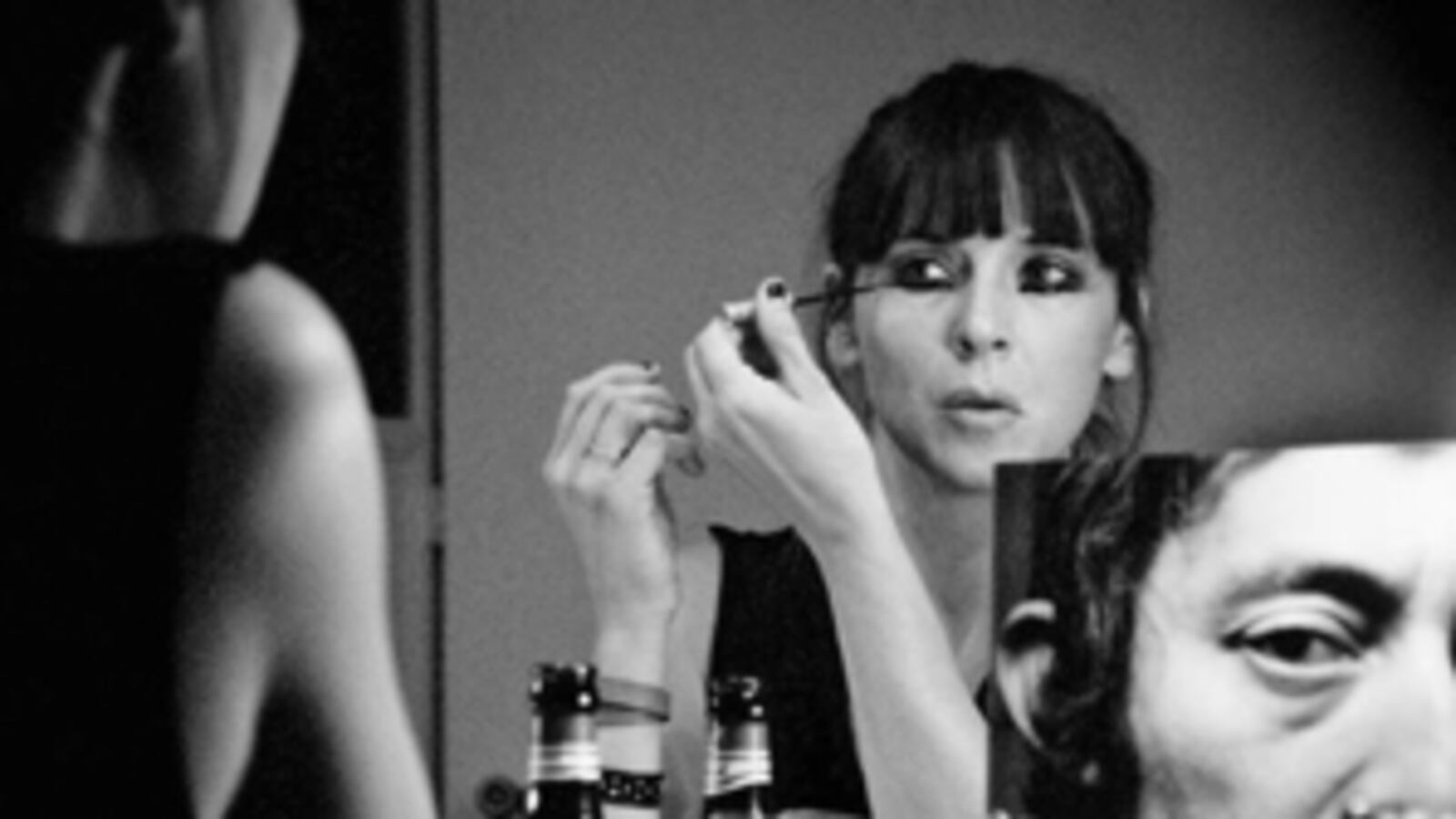
As a music writer living and working in New York during the mid-2000s, I knew all about Cat Power and I liked some of her most popular stuff. "Nude as the News?" Good song. "Metal Heart?" Stunning. Covers Record? It's cool when soccer moms dig indie rock! But when I interviewed Chan Marshall for an in-the-studio piece on Cat Power's new album, The Greatest, back in late 2005, it was just another assignment. (I didn't have to do a shot of whiskey beforehand like when I interviewed Stephen Malkmus.) But then we talked about peanut butter ice cream. And boys. And the South. And airport bathrooms. And she stayed on the phone with me past the point where I could hear stewardesses on the plane she was boarding pointedly instructing everyone to turn off their electronic devices. We were way done with the interview but when she offered to call me back after landing, I almost accepted. Who was this crazy girl?
I know about her drinking, and her drugging, and her pathological fear that she will end up like her mother. And I also know that it was naïve to think that someone with this background would be cool with me writing this book.

Fifty-plus interviews, trips to Atlanta and South Carolina, and cabs and buses and subways all over New York, countless plays of Cat Power albums later and I still don't know the answer to that question. Here is what I do know: I know that in the summer she used to stand on her porch and pass out popsicles to the kids in her old neighborhood in Atlanta. I know that she first learned about the indie-rock bands that lit the torch she now carries while working in a pizza parlor with a bunch of greasy rock dudes. I know that as a teenager she fetishized British import singles and talked on the phone in her bedroom instead of doing her homework. I also know about her mother's mental problems, and her father's envy of her professional success, and her half-brother who worries that his sister is ashamed of him. I know about Chan's boundless generosity and also about her terror of having things taken from her. I know about her drinking, and her drugging, and her pathological fear that she will end up like her mother. And I also know that it was naïve to think that someone with this background would be cool with me writing this book.

It's hard to believe now, so much has transpired, but when I started A Good Woman I was just a totally crushed-out fan and I couldn't imagine why she wouldn't be into the book. Chan writes brutally candid songs about the traumas in her life, including abortions, breakups, and parental abuse. She has made her career on being almost exploitatively transparent about her own pain. What possible objection could she have to someone else weaving all the pieces of her narrative, as told by her, together?
Uh, lots, as it turns out. The further I got into my research and writing of the book, the more intense Chan's objections to it became. But what's interesting is that though she was apparently very upset, she didn't really do any of the things she could have to make it hard for me to write. She called friends with bold names—famous photographers and fashion designers—and told them not to speak to me. She insisted that employees of Matador Records, her label, not go on the record with me (they did anyway). But she never told her mother. Or her father. Or the half-brother she rarely talks about. She never told any of the people who really know her. By the time I got Chan's mother, Myra, on the phone, a character Chan has accused of being a flawed parent at best and abusive at worst, it was nearly two years after I'd first started working on the book and Myra had never heard of it. After telling me she makes her own arrows and promising to reveal the truth about her relationship with Chan, she then tried to have me fired. For the gory details on that story, you'll have to read the book.

In the meantime, suffice it to say that A Good Woman is not the fan-girl letter I initially wanted it to be, and it's not the flimsy uniformed pamphlet Chan probably would have liked. Instead, it's a portrait of a woman at odds with her past, at odds with her present, at odds with me, and at odds with herself. It's the story of someone impossibly broken by life who nonetheless manages—when she opens her mouth, closes her eyes, and sings—to transcend her pain, my pain, and your pain and become the living, singing embodiment of redemption.
Plus: Check out Book Beast, for more news on hot titles and authors and excerpts from the latest books.
Elizabeth Goodman was editor at large at Blender magazine and has written for Rolling Stone, Spin, and Nylon.






